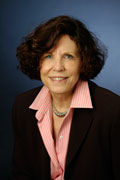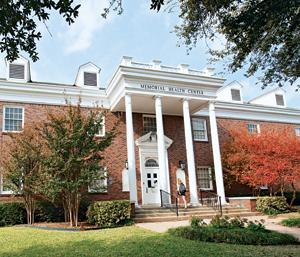
Maintaining a healthy physical lifestyle has become a prominent piece of college campuses across the country. Many schools are promoting a healthy lifestyle with newly renovated fitness centers, nutritionists and trainers, organic food and intramural sports. However, there is a whole other facet of health that colleges are now addressing — mental health.
The personal and social growth that students experience is just as important as their academic growth. A new environment, new people and a new-found responsibility make the transition into college a serious mental test.
The average age of onset for most mental health disorders is 18 to 24, making suicide the second leading cause of death on college campuses. Mental illness can happen to anybody regardless of gender, race, culture or economic status. Breaking the stigma and the negative connotation that comes with mental illness, is a change that college campuses are actively initiating.
“For many young adults, taking the first step to get help is the hardest part,” Allison Malmon, executive director and founder of Active Minds, told USA Today College.
Active Minds is a non-profit organization dedicated to changing the stigma associated with mental health issues, especially on college campuses. Founded in 2003, Active Minds has 400 chapters across the country, all of them being student-led. Currently, SMU does not have an Active Minds chapter on campus.
“The issues the program address are terribly important and we would be open to the idea of an Active Minds chapter coming to SMU if it would work with the campus size and if there is student interest in the program,” Dr. Cathey Soutter, counseling psychologist, and director of Counseling and Psychiatric Services (CAPS) at the SMU Memorial Health Center, said.
CAPS seeks to provide an open, supportive atmosphere in which individuals feel free to express their feelings and communicate their problems. CAPS sees over 1,000 students each year for a wide variety of reasons.
The CAPS staff trains with organizations that serve as referral resources for the program to maintain good relationships. Top referral resources are students, parents, faculty and staff, DASS, resident life and the panhellenic community. Parents are an important group that the CAPS staff reaches out to due to increase in student to parent communication via texting and the Internet.
“Any place where we have an opportunity to speak about services, we will do it,”
Soutter said.
“We encourage students to come sooner rather than later. It is easy to make an appointment on our client portal on our website. Students can schedule an initial triage appointment to get the help they might need,” Soutter said.
Students are frequently visiting the CAPS webpage to use many of informative self-screening instruments. There is an emergency service phone line and walk in emergency service session available to students in crisis.
“There may be a stigma for some people but for the most part many students are psychologically aware and savvy,” Soutter said.
Statistics show students have been more receptive to counseling programs than they have in the past six years.
“Rates are up in terms of how many people are coming. The range of concerns are broader and the severity of concerns has increased,” Soutter said.
Top users of the SMU Health Center are first-year students and graduate students in the biggest transition years. Students are beginning to realize that it is just as important to take care of your minds as well as your body.
“We are whole people, our body, soul, spirit and mind works together and when we neglect one part it is likely to our whole person,” Soutter said.
For more information students can visit the second floor of the Memorial Health Center, visit www.smu.edu/healthcenter/counseling or call 214-768-2277.









